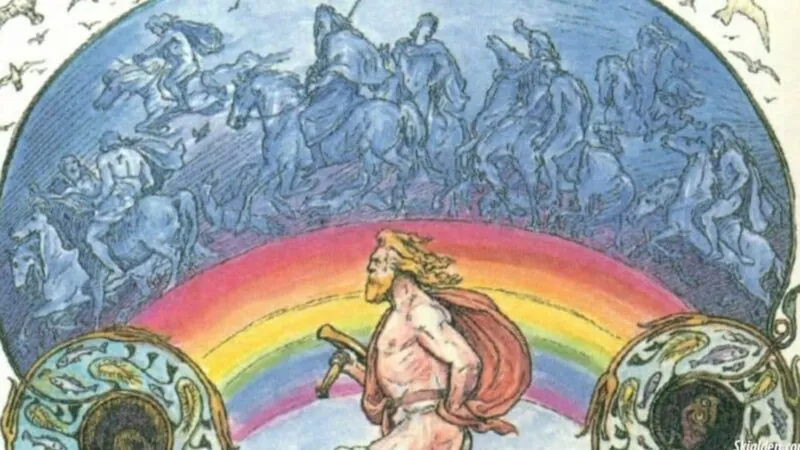Hope is the light that guides us through life’s darkest moments, offering comfort and strength when challenges seem overwhelming.
Throughout history, certain symbols have come to represent the unwavering resilience of the human spirit and the promise of brighter days ahead. Each of these icons carries a story of endurance, renewal, and inspiration, reminding us that even in the most trying times, there is always a reason to hold on and move forward.
Among these, the symbol of hope shines as a beacon, encouraging perseverance and belief in the possibility of change.
Let us see different examples of what can be a symbol of hope.
1. Dove
The dove stands as a universal symbol of hope, purity, and peace. Its image transcends cultural and religious boundaries, offering a message of tranquility and renewal to all who embrace its presence.
Historically, the dove has roots in ancient mythology and religious texts. In the Biblical story of Noah’s Ark, a dove returns to Noah with an olive branch, signaling the end of the flood and the restoration of life on Earth. This story highlights the dove as a harbinger of hope and new beginnings.
You should also check out the powerful symbols of protection.
Symbolism Across Cultures
In addition to its Judeo-Christian associations, the dove also holds significant meaning in other cultures and religions. In ancient Greek mythology, the dove was linked to Aphrodite (Venus in Roman mythology), representing love and the renewal of life.
Similarly, in many peace movements throughout history, the dove has been used as a symbol for hope to advocate for the end of conflict and the beginning of a peaceful era.
The Dove in Modern Times

Today, the dove continues to be an emblem of hope and peace. It is often used in art, literature, and ceremonies to convey a message of reconciliation and harmony.
The image of a white dove carrying an olive branch remains a powerful symbol of hope in peace negotiations and memorials around the world.
Fun Facts
- Doves in the Wild: Despite their symbolic purity, doves are quite common birds found in many parts of the world. They are known for their distinct cooing sound and are closely related to pigeons.
- White Doves at Events: The release of white doves at events, such as weddings and memorials, symbolizes the sending of a message of love, hope, and new beginnings to the heavens.
3. Heart
The heart is universally recognized as a symbol for hope, love, compassion, and the core of human emotion. Beyond its biological function, it represents the spiritual and emotional center of a person.
Since ancient times, the heart has been associated with life force and emotion. Egyptian mythology considered the heart the seat of the soul and moral integrity, judged in the afterlife.
Fun Facts
- Heart Symbol: The iconic heart shape, while not anatomically accurate, has become a universal sign of love and is celebrated globally, especially on Valentine’s Day.
- Heartbeat: The human heartbeat is often used metaphorically to represent life, passion, and emotional responses.
3. Olive Branch

The olive branch, an ancient symbol of peace and victory, carries a history rich with meaning. It represents reconciliation, new beginnings, and the end of conflict.
Originating in early civilizations, such as Greece and Rome, the olive branch was a gesture of peace or victory. In Greek mythology, the olive tree was a gift from the goddess Athena, becoming a symbol of prosperity and peace.
Political and Social Symbolism
In modern diplomacy, the olive branch continues to symbolize the quest for peace. It appears in the emblems of various organizations and nations, emphasizing a commitment to reconciliation and unity.
4. Light
Light represents knowledge, wisdom, and clarity in the face of ignorance and confusion. It guides the lost, provides comfort to those in despair, and reveals the unseen, making it a powerful emblem of discovery and understanding.
Cultural and Religious Significance
In many religious traditions, light is synonymous with divine presence. For instance, in Christianity, light is associated with Jesus Christ, who is referred to as the “Light of the World.”
Similarly, in Hinduism, the festival of Diwali celebrates the victory of light over darkness, good over evil.
The significance of light in these contexts underscores its role as a source of hope and spiritual awakening.
The lighting of candles during ceremonies or vigils serves as a gesture of remembrance and solidarity, while in science, light represents the pursuit of knowledge and the dawn of new discoveries.
5. Anchor

The anchor, traditional symbol for hope, is steeped in maritime tradition and has evolved to represent stability, hope, and steadfastness. Originally a practical tool for ships, the anchor has become a powerful metaphor for holding firm in turbulent times.
Symbolism and Significance
In a spiritual context, the anchor is often associated with strength and unwavering faith. It represents the stable part of our existence, keeping us grounded no matter how stormy life gets. For many, it is a reminder to stay firm in their beliefs and convictions.
The Anchor in Modern Contexts
Tattoos of anchors have become popular, symbolizing hope, salvation, and calm. They remind individuals of their personal strength and the need to remain anchored in their principles and values.
Fun Facts
- Anchor as a Christian Symbol: Early Christians used the anchor as a disguised cross during persecutions, representing hope in eternal life.
- Nautical Milestones: Sailors traditionally get an anchor tattoo after crossing the Atlantic Ocean as a rite of passage, symbolizing their maritime achievements and adventures.
6. Lotus Flower

Among Eastern religions and philosophies, the lotus holds profound spiritual significance.
In Buddhism, it represents the purity of the body, speech, and mind, as well as spiritual awakening. In Hinduism, the lotus is associated with beauty, prosperity, and fertility, often linked with gods and goddesses.
The Lotus in Art and Literature
The lotus flower has inspired artists and poets for centuries, symbolizing the beauty and complexity of life. It serves as a reminder that from difficulty can emerge strength and beauty.
Fun Facts
- Adaptive Growth: The lotus has a remarkable ability to regulate the temperature of its flowers, similar to warm-blooded animals.
- Symbol of Resilience: The seeds of the lotus can remain viable for centuries, representing enduring hope and the potential for renewal.
7. Rising Sun

The rising sun marks the dawn of a new day, symbolizing hope, renewal, and the endless cycle of life. It serves as a reminder that after darkness comes light, offering a fresh start and new opportunities.
The imagery of the rising sun is powerful in many cultures, representing the promise of a new beginning.
The Rising Sun in Modern Symbolism
Flags and emblems featuring the rising sun convey optimism and the birth of new nations or movements. It is a symbol for hope that encourages individuals and societies to look forward with hope and determination.
Fun Facts
- Sunrise Rituals: Many cultures perform rituals at sunrise to honor the sun’s life-giving energy and to welcome the new day with gratitude and intention.
- Symbol of Enlightenment: In many spiritual traditions, the rising sun represents enlightenment, the ultimate awakening to truth and knowledge.
8. Butterfly

The butterfly, with its remarkable transformation from caterpillar to winged beauty, stands as a symbol of hope, change, and life. This metamorphosis represents the idea that significant changes can lead to beautiful outcomes, embodying the potential for personal growth and renewal.
The butterfly’s life cycle, egg, larva (caterpillar), pupa (chrysalis), and adult, mirrors the journey of human growth and transformation. It suggests that periods of inward reflection and struggle can lead to beautiful, unexpected forms of existence.
Cultural and Spiritual Meanings
In many cultures, people view the butterfly as a messenger from the spiritual world, symbolizing the soul’s journey toward enlightenment.
In Japan, they often associate it with marital bliss and joy, while in Native American cultures, it represents guidance in change and transformation.
Fun Facts
- Symbol of Immortality: In ancient Greece, the butterfly was synonymous with the soul, believed to live on after the physical body had passed away.
- Diversity: There are over 20,000 species of butterflies worldwide, each with unique patterns that serve as camouflage, mate attraction, and warning signals to predators.
9. Green Shoots

Green shoots breaking through the soil serve as a profound symbol for hope, representing the emergence of new life, growth, and renewed vitality. The imagery resonates deeply, as it conveys the promise of recovery and renewal after periods of difficulty or hardship.
- The sight of green shoots often signifies the end of barrenness and the start of something fresh and vibrant.
- It reminds us that even after the harshest winters or the most challenging seasons, life finds a way to begin anew.
- These tender sprouts embody the strength to push through adversity, breaking free from the earth to reach the sunlight.
- They inspire individuals to persevere and embrace their own potential for growth, no matter the obstacles.
- Green shoots are also closely tied to personal and collective growth, encouraging optimism and belief in the potential for positive change, no matter how daunting the circumstances may seem.
Fun Facts
- Indicator of Change: Gardeners and farmers often use the first green shoots of spring to determine the ideal time for planting seasons.
- Symbol of Resilience: Certain plants demonstrate nature’s incredible resilience and capacity for regeneration by producing green shoots quickly after natural disasters.
10. Stars

Stars have captivated humanity since ancient times, serving as symbols of guidance, aspiration, and the infinite possibilities of the universe. They light up the night sky, offering hope and inspiration to those who gaze upon them.
In many cultures, stars represent the souls of the departed, watching over the living from the heavens. People often view them as a bridge between the earthly realm and the divine, embodying the eternal nature of the universe and life itself.
Modern Symbolism
Today, stars symbolize excellence, achievement, and ambition. People use them in flags, emblems, and awards to denote high honors and serve as guideposts for success.
Fun Facts
- Shooting Stars: Meteor showers, or “shooting stars,” are seen as omens of good luck and opportunities to make a wish for a brighter future.
- Constellations: Ancient civilizations created constellations, grouping stars into patterns that tell stories of their myths, heroes, and gods.
11. Rainbow
A rainbow, with its vibrant colors arching across the sky, acts as a powerful emblem of hope, promise, and diversity. It emerges after a storm, serving as a reminder that light follows darkness, and better times are ahead.
Rainbows form when sunlight refracts, or bends, in droplets of water, creating a spectrum of light in the sky.
Cultural Resonance

In various myths and traditions, rainbows have been seen as bridges to the divine.
In Norse mythology, the rainbow bridge Bifrost connects the world of humans to the realm of the gods. Irish lore, a common tale involves a leprechaun’s pot of gold hidden at a rainbow’s end, blending themes of fortune and the elusive nature of desires.
A Modern Symbol

Today, the rainbow flag waves as a sign of LGBTQ+ pride and acceptance, illustrating the spectrum of human identity and love. Its colors represent life, healing, sunlight, nature, harmony, and spirit, reinforcing the message of hope and inclusivity.
12. Phoenix

The phoenix, a mythical bird, symbolizes rebirth, renewal, and immortality. Rising from its ashes, the phoenix represents the cycles of death and resurrection, and the enduring spirit of hope and transformation.
Mythological Origins
The legend of the phoenix spans various cultures, including Greek, Egyptian, and Chinese mythologies. Depicted as a magnificent bird, it engulfs itself in flames at the end of its life cycle and rises reborn from the ashes.
The phoenix has been a potent symbol in literature and popular culture, representing resilience, the power to overcome adversity, and the promise of new beginnings.
Fun Facts
- Symbol of Immortality: The phoenix’s ability to rise from its ashes makes it a symbol of eternal life and the indestructible essence of the human spirit.
- Inspirational Metaphor: The phoenix is often used as a metaphor for overcoming challenges and emerging stronger from difficult situations.
13. Water
Water is essential to life and symbolizes purity, life, and renewal. Its fluidity and strength embody adaptability, emotional depth, and the subconscious.
Universal Symbolism
Across cultures, water is seen as a source of life and a medium for purification. It represents the flow of time, the cycles of nature, and the transformative power of change.
Fun Facts
- The Water Cycle: The continuous cycle of water, evaporating, forming clouds, and precipitating back to earth, mirrors the cycle of life, death, and rebirth.
- Cultural Festivals: Many cultures celebrate water through festivals that recognize its vital role in sustaining life and its cleansing properties.
FAQs
Summary
Symbols carry profound meanings, echoing our collective journey towards hope and renewal. They stand as beacons, guiding us through darkness to light, embodying resilience and the universal quest for connection. Through these emblems, we find shared strength, a reminder that even in the face of adversity, we are not alone.







